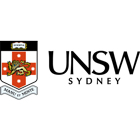Master of Biomedical Engineering
Master of Biomedical Engineering
Overview As a Biomedical Engineer, you’ll help create new technologies that improve disease diagnosis, find new and better ways of patient monitoring, revolutionise medical treatment and improve the quality of life for people with life-threatening or debilitating diseases and conditions. You’ll gain the expertise to enact change in influential areas…
Categories
COURSE DESCRIPTION
Overview
As a Biomedical Engineer, you’ll help create new technologies that improve disease diagnosis, find new and better ways of patient monitoring, revolutionise medical treatment and improve the quality of life for people with life-threatening or debilitating diseases and conditions.
You’ll gain the expertise to enact change in influential areas of human health, applying engineering principles to develop technologies and solutions in a range of healthcare-related fields that improve human lives, including:
Medical devices
Implantable bionics
Drug-delivery system
Medical imaging and radiotherapy
Orthopaedic devices
Robotic surgery
Cell and tissue engineering
Physical rehabilitation
This unique field brings together many engineering disciplines, including electrical engineering, mechanical engineering, computer engineering and chemical engineering.
Designed for students with a medical, biological science, physical science or engineering background this degree consolidates and specialises your knowledge in biomedical engineering.
Key features
The Master of Biomedical Engineering is a 1.7-year full-time or part-time equivalent, postgraduate degree offered at Australia’s leading engineering faculty.
This degree caters for students with either a medical/biological science or engineering/physical science background who want to further their education in this unique area. It is designed to apply engineering principles to developing technologies and problem solving in a diverse range of health care related fields.
Future careers
Biomedical engineers study across engineering, medicine and biology. This broad experience enables biomedical engineers to find employment in hospitals, government bodies, industry or academic areas. Specific industry sectors where you can grow your career include:
Healthcare
Social assistance
Professional, scientific and technical services
Wholesale trade
Manufacturing
REQUIREMENTS
Admission to this program requires one of the following:
4-year Bachelor of Engineering degree with a minimum 65% average; or
4-year Bachelor degree in a biomedical health-related discipline* with honours (either embedded or as a single honours year) with a minimum 65% average and 2 courses of first-year university level mathematics or equivalent; or
Graduate Diploma in Biomedical Engineering (such as 5449 UNSW Graduate Diploma in Biomedical Engineering) with a minimum 65% average; or
Completion of 36 UOC of the 5449 UNSW Graduate Diploma in Biomedical Engineering with a minimum 65% average with no fails.
English Language Requirements:
IELTS: 6.5 overall (min. 6.0 in each subtest); TOEFL IBT (Internet Based): 90 overall (min. 23 in writing, 22 in reading, listening and speaking); Pearson (PTE – Academic): 64 overall (min. 54 in each subtest); C1 Advanced Cambridge: 176 overall (min. 169 in each subtest); C2 Proficiency Cambridge: 180 overall (min. 180 in each subtest); UNSW Global University English Entry Course (UEEC): Successful completion with a minimum overall grade of C+ and a minimum grade of C in the writing component.
EDUCATIONAL INSTITUTION
The University of South Australia is a globally connected and engaged university with industry-informed teaching and research that is inventive and adventurous. Ranked in the world’s top 50 under 50^ and with 100% of assessed research rated at or above world-class*, the University is young, innovative and offers students the chance to gain real-world experience.Focused on life beyond the classroom, the University of South Australia offers a practical approach to teaching and learning. Degrees are designed in partnership with industry, giving students opportunities to gain the latest insights and trends and ensuring they graduate career ready.^Ranked in the World’s Top 50 Under 50 – Ranked #29, 2021 QS Top 50 Universities Aged Under 50 and Ranked #46, 2022 THE Young University Rankings*2018 Excellence in Research for Australia (ERA), 4-digit Fields of Research




